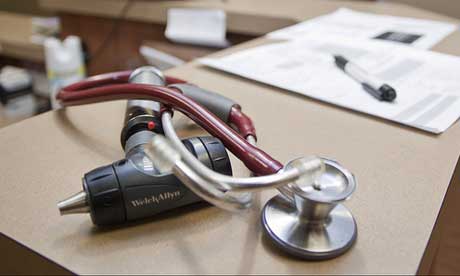
Some symptoms can't be cured with your first-aid kit. Here we explain which travel illnesses need an expert's help
Last issue we looked at treating blisters, piles and other little niggles that can blight your travels. But what if you require more than a plaster or some Sudocrem? Here we look at the symptoms that might take you to a doctor for some expert advice.
Steve went on holiday to South Africa. He’d read that malaria was a problem in Kruger National Park so bought chloroquine and Paludrine tablets over the counter from his local pharmacy. Ten days after he arrived in the Kruger he started to feel hot, sweaty and achey all over. He mentioned this to a tracker who told Steve to get to the local clinic.
The doctor diagnosed malaria, gave treatment and Steve recovered quite quickly – although not quickly enough: the malaria ruined his trip. It was a false economy to take malaria advice from the pharmacy.
He was lucky that the tracker had told him to go to the clinic promptly. The longer you wait to get treated, the slower you are to recover – and there is even a risk of not recovering: the death rate from untreated falciparum malaria is about 20%.
Sally, who was taking the oral contraceptive pill, flew to New Zealand. The airhostesses were generous with the free alcohol and she slept a great deal. Ten days later her left leg became hot, swollen and a bit sore.
A hospital scan showed that she had a deep vein thrombosis (DVT). She was given intravenous heparin and started on warfarin tablets, which she had to take for six months.
Later she discovered that her grandmother had also had a clot after an operation to strip varicose veins. People whose blood relatives have had clots need to take even more care to avoid DVT. Women on the pill are also at an increased risk of developing a DVT. Sally now wears flight socks on journeys longer than five hours – and she is more abstemious with in-flight alcohol.
Alex woke up with a sore eye, having hiked through thorny scrub the previous day. The eye was caked closed and when he bathed away the crud and opened his eye, the light hurt it. The other eye was normal.
A paramedic at a tiny local clinic gave him antibiotic eye drops. The next day the eye was worse – he could hardly open it. He asked at the biggest hotel in town about a hospital and got a taxi there. The eye specialist looked under the upper lid and found a tiny hook from the sticky seedpod of a vine and removed it with a cotton bud. This had been scratching the intensely sensitive front of the eye, which quickly recovered once the scratching stopped.
Conjunctivitis (‘pink eye’) is common; it always spreads to affect both eyes and is quickly curable with antibiotic drops. However, if only one eye is sore and red then you need to find an eye specialist to identify the cause.
Liz was bitten on the back of the leg by a dog in Madagascar. The bite wasn’t deep but there were several tooth-puncture marks on the calf. It was an unprovoked attack but the dog looked normal.
She didn’t know what to do as there were no phones locally. She went to a little village clinic where – as far as she could understand in her broken French – the ‘doctor’ said that she needed anti-rabies shots. These would be given over many days into the abdomen, and the first one would be available in a few days. The ‘doctor’ thoroughly cleaned the wound, gave her antibiotics and offered to stitch the bites but Liz was scared of needles and thought the bites looked small enough not to bother.
She fled to the capital where she phoned the medical assistance agency that her travel insurance used. She was relieved to be able to talk to a British nurse about all this and to discover that it is best not to stitch animal bites. The assistance agency directed Liz to an international clinic, which gave her the safer, more effective shots in the arm.
Paul felt unwell with a fever and thought he had flu. The cause of the symptoms was a tiny break in the skin of his shin that he’d scraped on some steps. The graze was less than a centimetre long but he’d not cleaned it and it had become red, inflamed and throbbing. Red tracks ran up his legs to painful lymph nodes in his groin.
A local doctor prescribed broad spectrum antibiotics (flucloxacillin four times a day for a week), which rapidly cured the problem.
Danny was on a trip in the Rockies when he was bitten by a tick. It had been on him for days; in his frenzy to remove it, he ripped it off and left some of the mouthparts behind.
The wound healed all right – except for two little black specs left as a reminder – but he started to read about ticks, Rocky Mountain spotted fever and Lyme disease. He became unwell, feverish, had sweats and palpitations. His GP did blood tests and eventually discovered that his illness was a problem with his thyroid gland and had nothing to do with the tick or his trip.
While it’s easy to assume that any illness following a trip abroad is due to travelling, this is not necessarily the case – not all diseases that start after travel are travel-related.